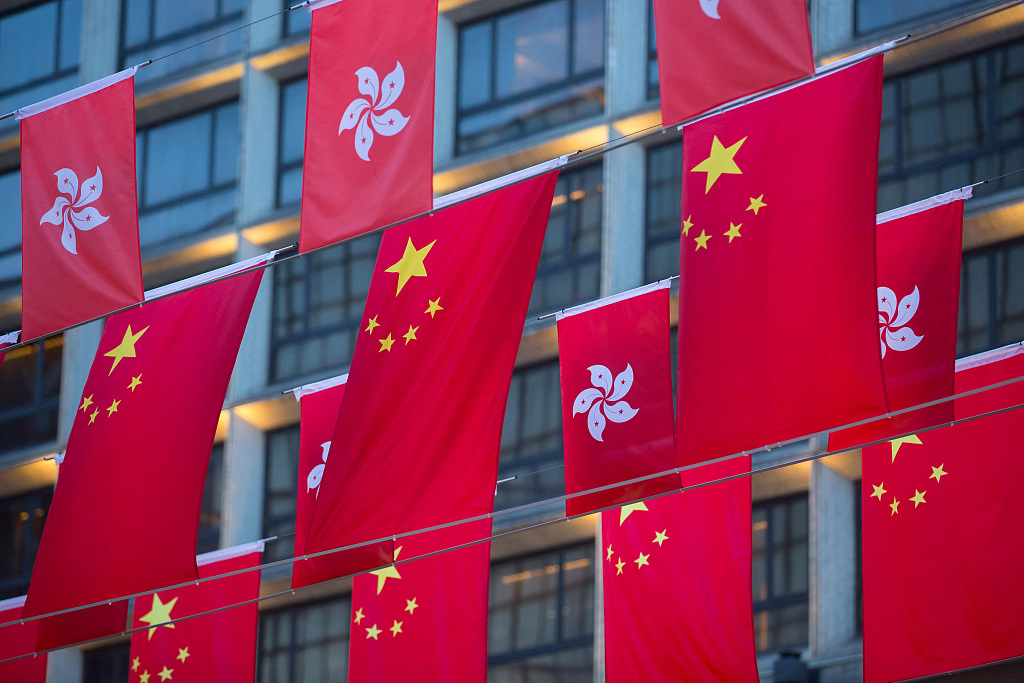Unity only way to stop SAR falling into abyss
By Paul Yeung | China Daily Asia | Updated: 2019-08-12 15:34

What do we need to do to stop Hong Kong from sliding headlong into an abyss? The intensifying protests and conflicts over the past several weeks have led to widespread concern and distress among Hong Kong residents. The persistent turbulence is not only a huge challenge facing the Hong Kong Special Administrative Region Government, but also a great concern to every Hong Kong resident. There are opinions that the SAR government should meet the demands of the protesters. The problem is: Is this really effective in resolving the current impasse? What is the crux of the crisis Hong Kong is now facing?
Let’s take a look at the protesters’ shifting demands. They now insist that the extradition bill must be withdrawn; the June 12 violent incident must not be depicted as a riot; protesters arrested in violent clashes should not be subjected to further investigation for possible violation of the law; an independent commission must be set up to investigate police “abuse of power” and the Yuen Long violence; and universal suffrage should be implemented for the election of the chief executive and lawmakers. These are not exactly the same as their initial demands. The shifting demands suggest the protesters can never be satisfied. They will keep upgrading their demands.
The current turbulence has contributed to unhappiness. Another study conducted by the University of Hong Kong during the turmoil revealed that nearly one in 10 people in Hong Kong were believed to be suffering from depression. The recent turmoil has led to an alarming surge in calls for emotional support, with specialists warning of an increase in suicidal thoughts. The study also revealed that whether a person has participated in anti-extradition bill protests or supported the bill made little difference to the rate of probable depression. This suggests the controversy has created a community-wide “spillover” effect.The current turbulence is a product of long-standing political and social conflicts. Many protesters are merely venting their anger. The Department of Social and Behavioral Sciences at City University of Hong Kong released a survey on the happiness of the younger generation defined as aged 40 or below. The study found that the “happiness index” of Hong Kong is 6.8 points, which is relatively low compared with Singapore’s 7.48. The study investigated the happiness and satisfaction in 11 areas. Undoubtedly, housing with 3.87 points was the worst. It makes sense that the SAR government has put great effort into tackling the housing problem. What is noteworthy is that the grading for law and order was 6.68, among the highest of subindexes. This means that confidence in law and order is the pillar of happiness. Unfortunately, the survey was conducted before the anti-extradition bill campaign, which is posing a great threat to law and order in Hong Kong.
The risk factors identified in the two studies should lead us to view the current crisis from a different perspective. Gabriel Matthew Leung, the chair of public health medicine at the University of Hong Kong, has described the situation as “an epidemic of mental health linked to serious societal events”. This “health crisis” is reminiscent of the SARS (severe acute respiratory syndrome) crisis in 2003. Leung said that “unlike other epidemics, we might not have good vaccines or medications now”. This is sadly true. But was it really the vaccines that helped us overcome the SARS challenge? The medications can only cure the disease, but what healed society is another vital element.
If we investigate the root cause of the health crisis, we can find that it is social distrust and its spillover effect. When people have opposing views, they will have conflicts. This could create widespread distress, and stress itself is a risk factor. When stress is prolonged, people will be more vulnerable to health problems. The labeling of “Yellow” and “Blue” is a typical example. It will lead to further distrust and discourage effective communication, which will lead to even worse conflicts.
The solution to the current conflicts and the cure to the mental health crisis are not any of the demands raised by the protesters but unity. We need unity to end despair and social divisions. If we do not take action soon to mend divisions, the situation could deteriorate into total social and economic anarchy. There is a famous motto from the ancient Greek storyteller Aesop: “United we stand, divided we fall.” Leaders and members of society must stand together to restore unity and mutual trust for the sake of Hong Kong’s future.
The author is research officer of the One Country Two Systems Research Institute.
























